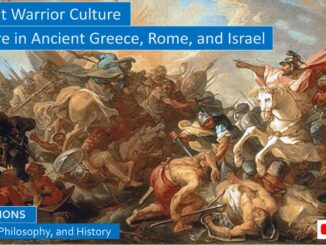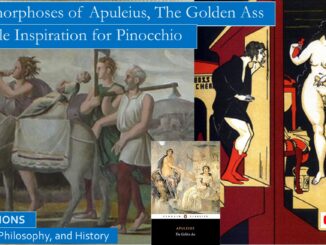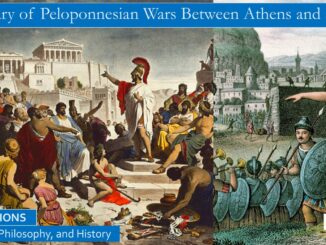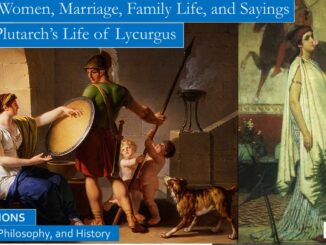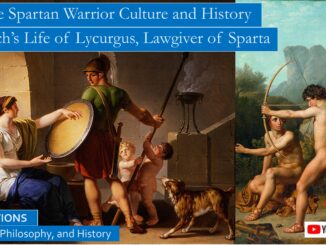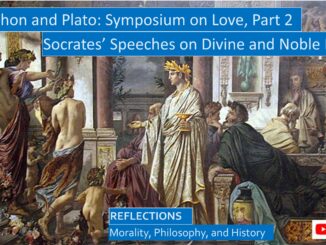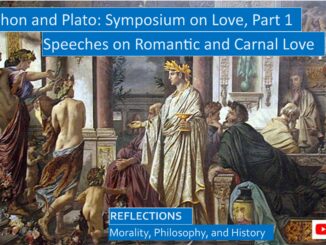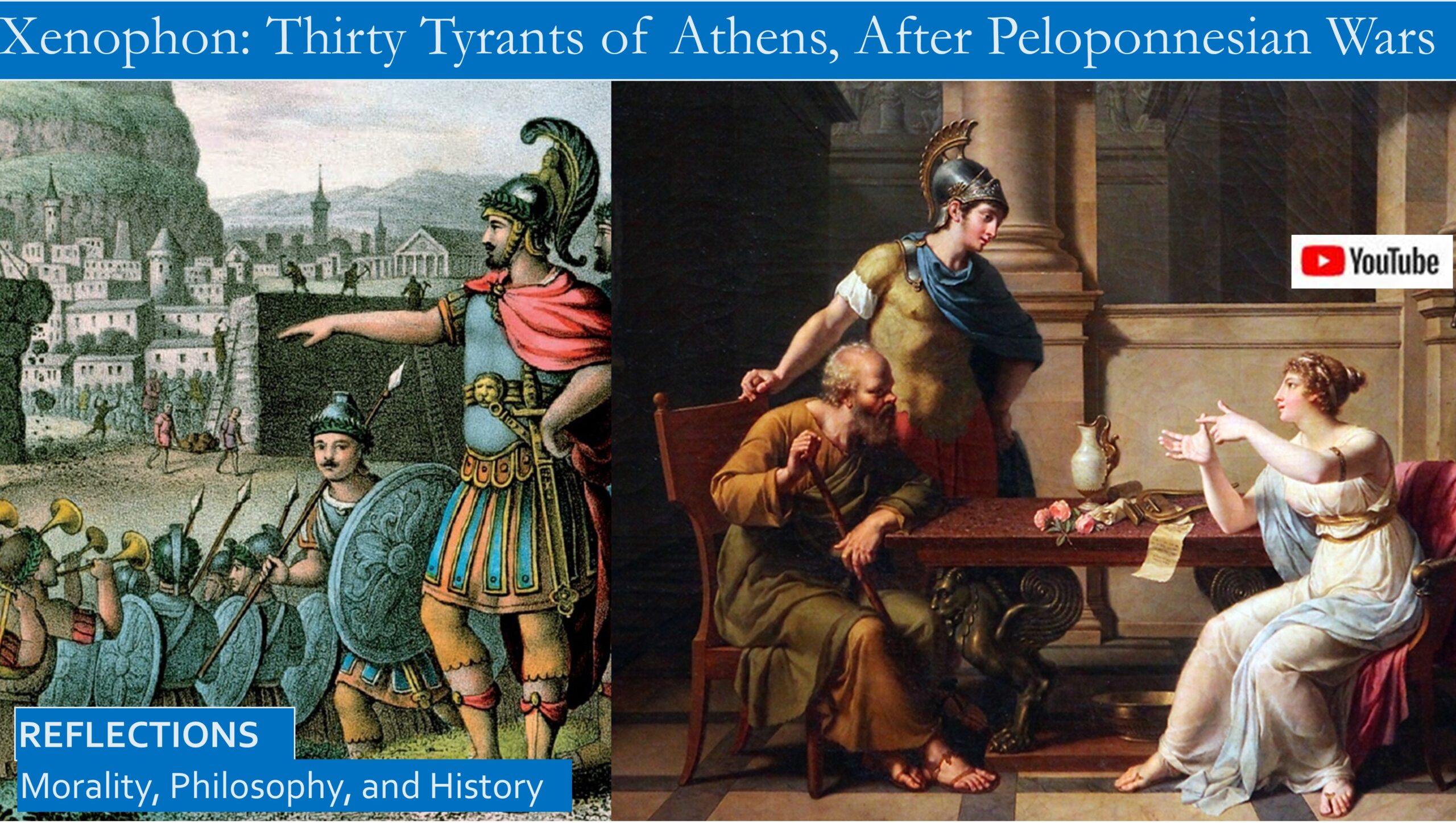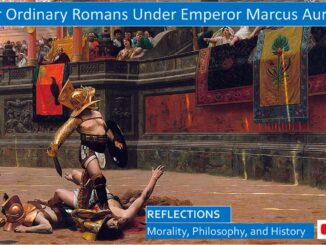
Ordinary Life for Romans Under Stoic Emperor Marcus Aurelius
Professor Aldrete in his Wondrium lecture on the History of the Ancient World points out that the ancient historians and sources are silent on what life was like for the many farmers who labored in obscurity, that these ancient histories are really histories of political leaders and city dwellers. For every person who lived in the city in much of the ancient world, eight or nine lived on a family farm. The ratio differed around Rome, about a quarter of the people nearby lived in the city. Most people never traveled more than twenty miles from home, never saw a king, never read a book, or heard a philosopher speak. Most people living on farms did not even know the name of the Roman Emperor, and life went on as before no matter who was emperor. […]

